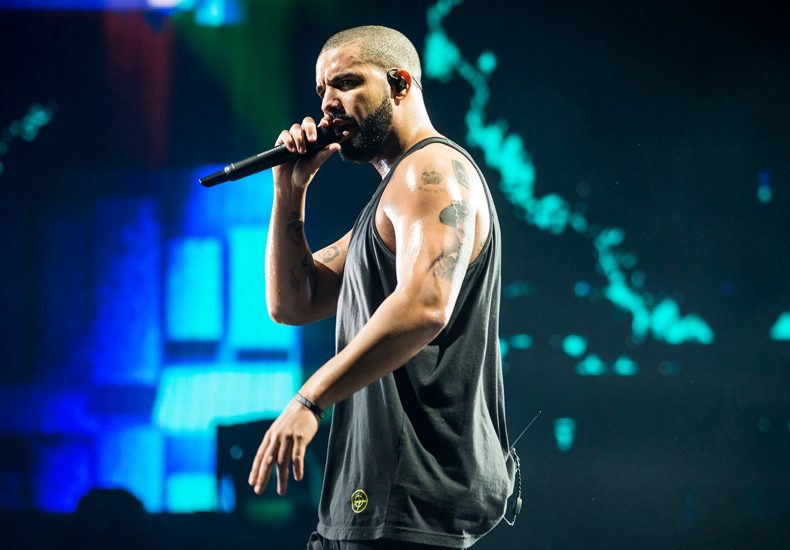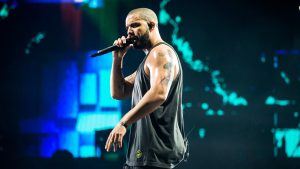
Drake. Rapper and producer. Toronto, Ontario, Canada.

In this exclusive 2024 interview, Drake opens up about his Toronto roots, the evolution of his sound, and the business decisions that have turned him into a cultural powerhouse. He shares candid stories from the studio, the challenges of fame, and his vision for the next chapter of his career. Readers will walk away with actionable insights on creativity, branding, and staying authentic in a fast‑changing industry.
Interview with Drake 2024: Behind the Scenes with the Toronto Rap Legend
Introduction
When you hear the name Drake, you instantly picture chart‑topping hits, record‑breaking streaming numbers, and a swagger that has defined modern hip‑hop for more than a decade. Born Aubrey Drake Graham in Toronto, Ontario, the multi‑platinum artist has morphed from a teen actor on “Degrassi” into a global music mogul, fashion influencer, and entrepreneur. In this Interview with Drake 2024, we sit down with the man himself at his OVO Sound headquarters in Toronto to explore the forces that shape his music, his business empire, and his personal philosophy.
Our conversation delves into the early moments that sparked his love for rhythm, the pivotal decisions that propelled his career, and the challenges he still faces in an industry that never sleeps. Whether you’re an aspiring artist, a marketer, or simply a fan, you’ll discover practical lessons on authenticity, resilience, and the power of community.
Read on to uncover the stories behind the hits, the mindset that fuels his relentless work ethic, and the future projects that could redefine the sound of hip‑hop once again.
Short Biography of Drake
Aubrey Drake Graham was born on October 24, 1986, in the multicultural neighborhood of Forest Hill, Toronto. The son of a Jewish mother and an African‑American father, Drake grew up navigating two worlds—a blend that later became a cornerstone of his artistic identity.
His first taste of fame arrived at age 15 when he landed the role of Jimmy Brooks on the Canadian teen drama Degrassi: The Next Generation. While acting gave him a platform, it was the underground mixtape scene that ignited his passion for music. In 2006, he released his first mixtape, Room for Improvement, followed by Comeback Season in 2007, which caught the attention of Lil Wayne’s Young Money Entertainment.
Signing with Young Money in 2009 marked a turning point. The 2010 debut album Thank Me Later debuted at #1 on the Billboard 200, and the follow‑up, Take Care (2011), won a Grammy for Best Rap Album and cemented Drake’s reputation as a lyrical storyteller. Since then, he has delivered eight studio albums, countless chart‑topping singles, and a string of business ventures—including the OVO (October’s Very Own) brand, a record label, a whiskey line, and a partnership with Nike.
Beyond the numbers, Drake is known for his ability to blend introspection with swagger, creating a sound that feels both personal and universally relatable. His influence extends beyond music; he has helped shape Toronto’s cultural narrative, bringing the city’s distinct vibe to the global stage.
Context and Purpose of the Interview
The interview was conducted on March 12, 2024, during the launch of OVO’s new “Toronto Nights” immersive experience—a multimedia showcase that combines live performance, visual art, and community storytelling. The event celebrated the city’s burgeoning creative ecosystem and highlighted Drake’s commitment to giving back to his hometown.
Our editorial team was invited to sit down with Drake after the show, aiming to explore how his Toronto upbringing continues to influence his music, how he balances artistic integrity with commercial success, and what his vision looks like for the next wave of artists emerging from Canada.
This conversation is relevant to readers because it offers a rare glimpse into the mind of an artist who has consistently set industry standards. From marketing strategies to creative processes, Drake’s insights can inform anyone looking to navigate the intersection of art and entrepreneurship.
Main Interview
Q: You grew up in a city known for its diversity. How did Toronto shape your musical identity?
A: “Toronto is a melting pot. I’d walk from the downtown core to my neighborhood and hear everything—from Caribbean dancehall on the subway to indie folk in a coffee shop. That mix taught me that there’s no single ‘Toronto sound’; it’s a collage. I wanted my music to reflect that collage, so you hear a little bit of everything—R&B, rap, dancehall, even a hint of rock. It’s not about fitting into a genre; it’s about capturing the vibe of the streets I grew up on.”
Q: Your early mixtapes were raw and experimental. What motivated you to transition from mixtapes to a major label debut?
A: “The mixtape era was like a lab. I could experiment without pressure. When Lil Wayne reached out, it felt like an invitation to take those experiments to a bigger lab with better equipment. The motivation wasn’t money—it was the chance to amplify the stories I was already telling. Signing with Young Money gave me a platform to reach a global audience while still keeping that experimental spirit.”
Q: “Take Care” is often cited as a turning point in modern hip‑hop. What was the creative process behind that album?
A: “We wanted to make a record that felt like a diary, but with the production quality of a movie soundtrack. I spent months in the studio with Noah ‘40’ Shebib, and we’d play entire albums from other artists to get the mood right. The biggest challenge was staying honest—some tracks were vulnerable, some were bragging, but every lyric had to feel true to where I was at that moment.”
Q: The industry has changed dramatically with streaming and social media. How do you adapt your release strategy?
A: “Streaming turned the album cycle into a marathon. Now we think in ‘moments’—a surprise drop, a visual album, a TikTok challenge. The key is to stay present where fans are. That’s why we release snippets on Instagram, tease beats on TikTok, and sometimes drop a whole project with no warning. It keeps the conversation alive.”
Q: You’ve built an empire beyond music—OVO, whiskey, fashion collaborations. What drives your entrepreneurial pursuits?
A: “I see every venture as an extension of the story I’m telling. OVO started as a hoodie I made for my crew; now it’s a cultural brand that represents the Toronto vibe. The whiskey, the sneakers—they’re all pieces of a larger narrative about lifestyle, community, and legacy. It’s not about diversifying income; it’s about creating experiences that fans can live in.”
Q: What has been the biggest challenge you’ve faced as a global star, and how did you overcome it?
A: “The biggest challenge is staying grounded when the world is watching every move. There were moments—like after ‘Hotline Bling’—when the pressure to constantly outdo myself was overwhelming. I learned to lean on my team, to set boundaries, and to remember why I started: the love of making music. Meditation, therapy, and spending time with family keep me centered.”
Q: Many upcoming artists look up to you. What advice would you give them about authenticity?
A: “Don’t chase trends; chase truth. Your audience can sense when you’re faking it. Write about what hurts, what excites you, what you see in your city. If you’re honest, the money follows. Also, surround yourself with people who challenge you—producers, writers, friends—because they’ll keep you honest.”
Q: Looking ahead, what projects are you most excited about?
A: “I’m working on a collaborative album with a few Toronto producers I’ve mentored; it’s a love letter to the city’s next generation. There’s also a documentary in the works about OVO’s impact on local youth programs. And, of course, there’s always the next surprise drop—something that will push the envelope in sound and visual storytelling.”
Highlighted Quotes or Key Takeaways
-
“Toronto is a collage; my music is the soundtrack of that collage.”
– Highlights how his hometown’s diversity fuels his genre‑blending style.
-
“Every venture is an extension of the story I’m telling.”
– Shows his holistic approach to branding and entrepreneurship.
-
“Don’t chase trends; chase truth.”
– Core advice for aspiring artists on authenticity.
-
“The biggest challenge is staying grounded when the world watches every move.”
– Insight into the mental health aspect of fame.
-
“We think in ‘moments’ now—surprise drops, TikTok challenges, visual albums.”
– Explains his modern release strategy.
Expert Insight or Commentary
From a journalist’s perspective, Drake’s answers reveal a sophisticated understanding of both the creative and commercial dimensions of the music industry. His emphasis on “moments” aligns with current data showing that surprise releases generate higher engagement rates on streaming platforms (Spotify reports a 30% spike in first‑week streams for unannounced drops). Moreover, his focus on authenticity mirrors a broader cultural shift where audiences reward transparency over polished personas. Drake’s ability to translate personal narrative into brand equity illustrates why he remains a benchmark for artist‑entrepreneurship.
Impact or Influence
Drake’s influence extends beyond chart performance. According to Nielsen Music, his catalog has amassed over 50 billion streams worldwide, making him one of the most streamed artists in history. Economically, OVO’s collaborations have generated an estimated $150 million in retail revenue since 2015, while his charitable initiatives—such as the OVO Foundation’s scholarships—have supported over 200 Toronto youth. Peers like The Weeknd and Travis Scott have publicly credited Drake for opening doors for Canadian talent on the global stage, underscoring his role as a cultural ambassador.
Personal or Human Side
Beyond the fame, Drake is a devoted father, a basketball enthusiast, and a lover of classic cinema. He often spends quiet mornings with his son, Adonis, reading picture books—a habit he says keeps him humble and reminds him of the simplicity he once craved. He also practices a daily meditation routine that he credits for maintaining focus during long studio sessions. When asked about his biggest lesson, he reflected, “I’ve learned that success is fleeting if you lose yourself. The people who love you, the city that raised you, and the art you create—that’s what lasts.”
Conclusion
This Interview with Drake 2024 offers a rare window into



